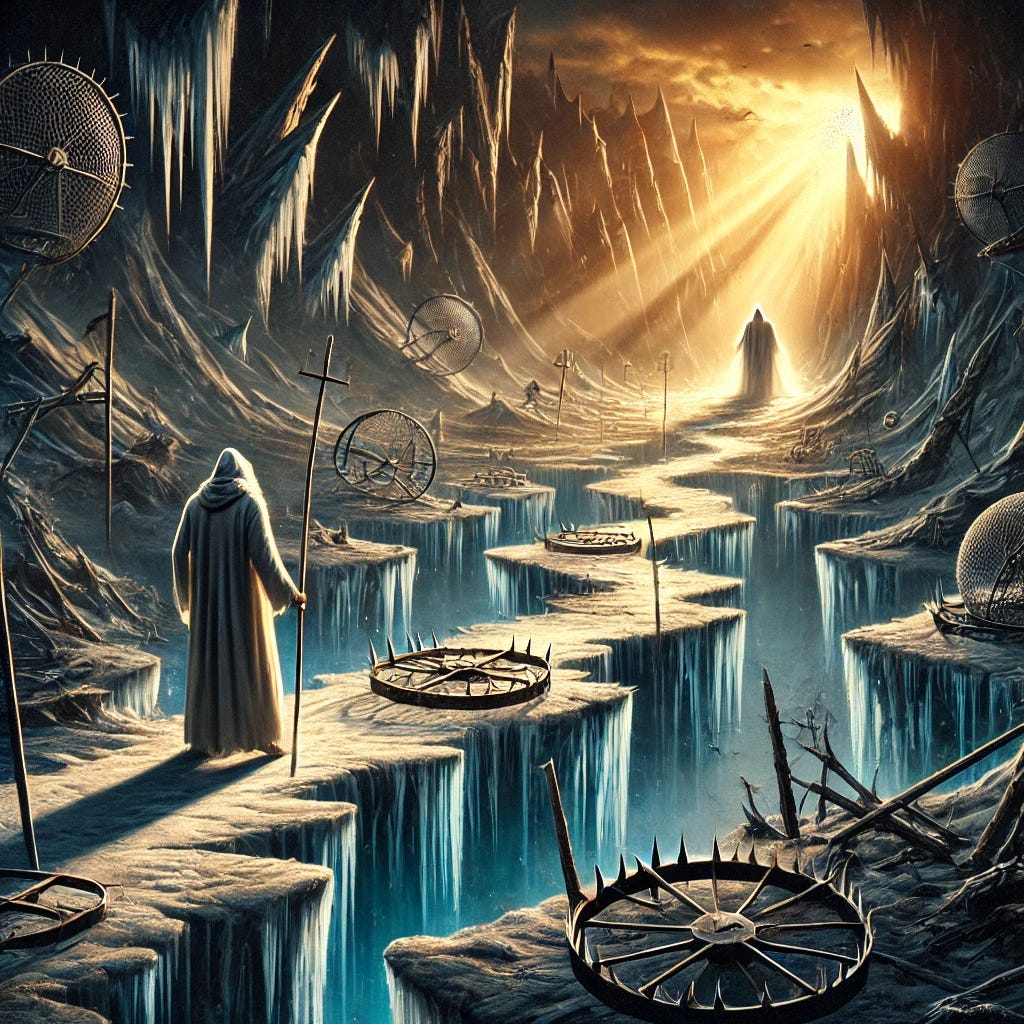The Hidden Derasha of Hot and Cold
Before we get to the actual content about the hidden derasha, here are some old posts. Because on 143b, after a dispute between Abaye and Rav Yosef, we concluded:
וְהִלְכְתָא כְּווֹתֵיהּ דְּרַב יוֹסֵף בְּשָׂדֶה, עִנְיָן וּמֶחֱצָה.
The Gemara concludes: And the halakha is in accordance with the opinion of Rav Yosef in three matters where he disagreed with Rabba: In the matter of dividing a field between brothers (see 12b); in the matter of whether certain actions are limited by the court session or by the topic of discussion in the court (see 114a); and in the matter of half, i.e., this matter, whether an unspecified division into two parts is divided into two equal halves.
Who says this? Is this Rav Ashi? A Savora? Is it a binding pesak halacha about these three disputes? Is it actually the reverse, and thus demonstrating that the halacha is against Rav Yosef in a plethora of other disputes, including the many disputes with his colleague Rabba bar Nachmani? Or, is it actually just a mnemonic for explicit instances where it is clear(ish) how we should rule? Is this rule or mnemonic limited to Bava Batra / the greater masechta of three Bavas, since these three appear in Bava Batra? Or does it apply across the board? What about the counter-examples I can offer?
So, this led to a few articles. See:
Rabba vs. Rav Yosef, part one (article preview)
Rabba (bar Nachmani) and Rav Yosef (bar Chiyya) were third-generation Amoraim situated in Pumbedita, and were frequent disputants. Rav Yehuda (bar Yechezkel) was their teacher and the prior head of Pumpedita academy. When Rav Yehuda died (Berachot 64a), it was unclear who would next lead the academy. Rav Yosef was “Sinai” – that is, expert in tradition, so was a font of knowledge akin to Mount Sinai. Rabba was an “uprooter of mountains”, expert in incisive reasoning. (Note also that Har Sinai is a mountain.) They asked for advice from the Sages of Eretz Yisrael, who responded that Sinai takes precedence, for everyone needs the owner of the wheat, that is, the sources from which to reason. Even so, Rav Yosef refused the appointment, since Chaldean astrologers had told him that he would preside over Pumpedita academy for two years. In this way, he cleverly extended his life. Rabba presided over the academy for twenty-two years, and Rav Yosef subsequently presided over the academy for two and a half years.
and:
Rabba vs. Rav Yosef, part two (article summary)
This post is a summary of part two of Rabba vs. Rav Yosef, and the exploration of whether it really is a legal decisive principle. Because it is part two, and the subject matter is complicated, it really pays to first read part one. So if you haven’t, or if it has been too long since part one, why not first reread it?
OK, with that self-promotion out of the way, on to the derasha. In yesterday’s daf, Bava Batra 144b:
חָלָה וְנִתְרַפֵּא – נִתְרַפֵּא מִשֶּׁל עַצְמוֹ. שְׁלַח רָבִין מִשְּׁמֵיהּ דְּרַבִּי אִלְעָא: לֹא שָׁנוּ אֶלָּא שֶׁחָלָה בִּפְשִׁיעָה, אֲבָל בְּאוֹנֶס – נִתְרַפֵּא מִן הָאֶמְצַע. הֵיכִי דָּמֵי בִּפְשִׁיעָה? כִּדְרַבִּי חֲנִינָא – דְּאָמַר רַבִּי חֲנִינָא: הַכֹּל בִּידֵי שָׁמַיִם, חוּץ מִצִּנִּים פַּחִים; שֶׁנֶּאֱמַר: ״צִנִּים פַּחִים בְּדֶרֶךְ עִקֵּשׁ, שׁוֹמֵר נַפְשׁוֹ יִרְחַק מֵהֶם״.
§ The mishna teaches: If one of the brothers became sick and sought treatment, the cost of the treatment is paid from his own resources. Ravin sent a ruling in the name of Rabbi Ela: They taught this only in a case where he became ill through negligence. But if he became ill through circumstances beyond his control, the cost of the treatment is paid from the middle, i.e., from the common inheritance. The Gemara asks: What are the circumstances in which it is considered negligence? This is in accordance with the statement of Rabbi Ḥanina, as Rabbi Ḥanina says: All occurrences that befall man are in the hand of Heaven except for colds and obstacles [paḥim], from which one is able to protect himself, as it is stated: “Colds and snares are on the path of the crooked; he who guards his soul shall keep far from them” (Proverbs 22:5).
Often, when a straightforward reading of a verse on a peshat level almost gets you there, to the intended lesson, everyone just assumes that the midrashic author is just invoking the verse.
Thus, since colds (or extreme heat) are in the path of the crooked, it is your own responsibility to guard your soul / life by keeping far. If you don’t, it is your own stupid fault. And presumably, if you don’t, there is real danger, so that means that Hashem with his Hashgacha Pratit, assuming that is indeed how he runs the world — see Rishonim who argue — even Hashem, has effectively declared here that He will not intercede, because it is up to you.
Or something like that. Here is Rashbam:
צנים פחים - לישנא דקרא צנים פחים בדרך עקש הצנה והקור פח ומוקש בדרך עקש כי בידו הדבר תלוי להשמר מן הצנה ויש מפרשים צנים פחים קור וחום:
And Tosafot:
חוץ מצנים פחים. דהיינו קור וחום כדמשמע בריש מסכת ע"ז (דף ג: ושם) והא דאמרינן בהמקבל (בבא מציעא דף קז:) והסיר ה' ממך כל חולי זו צינה הכי פירושו שיתן לך דעת לשמור מן הצינה ליתן לך בגד ללבוש ובירושלמי אמר שאנטונינוס היה לו לילך בדרך אמר ליה לרבי צלי עלי אמר ליה יהא רעוא דתשתזיב מן צנתא אמר ליה דא צלותא בתמיה יתיר חד כסו וצנתא אזלא א"ל יהא רעוא דתשתזיב מן שרבא אמר ליה הא ודאי צלותא דכתיב ואין נסתר מחמתו:
The Artscroll and R’ Steinsaltz translations don’t take pains to explain it, because it is so obvious.
However, if so, there isn’t anything explicit in the verse that says that Hashem doesn’t deal with this. Unless…
Unless we translate שׁוֹמֵר נַפְשׁוֹ יִרְחַק מֵהֶם as “He Who guards his soul Shall keep far from them”, referring to Hashem. God generally guards this persons life from all sorts of danger, but regarding צִּנִּים פַּחִים, cold drafts or hot and cold, Hashem keeps far from that, and it is not part of His Hashgacha.





